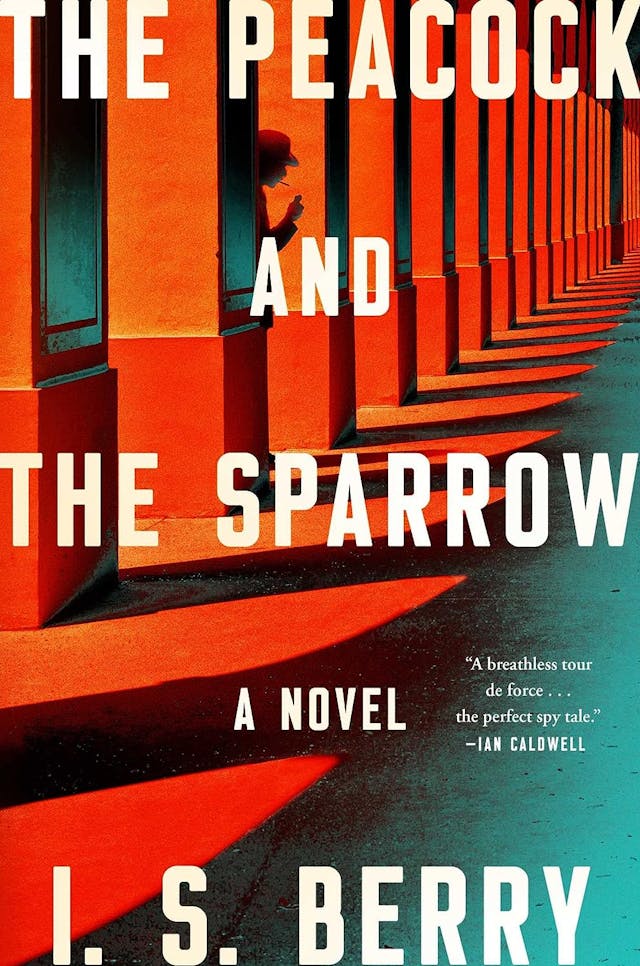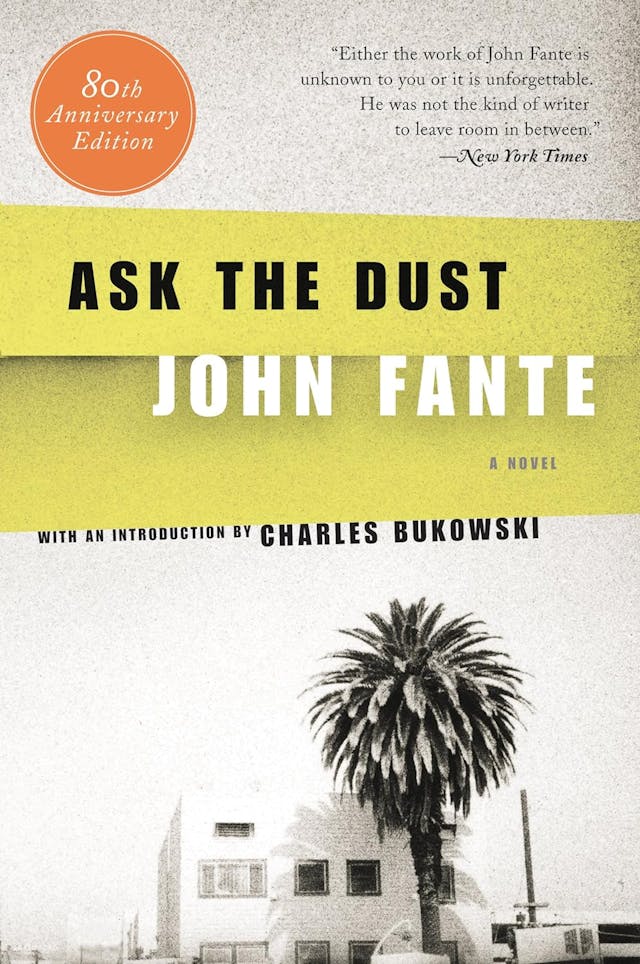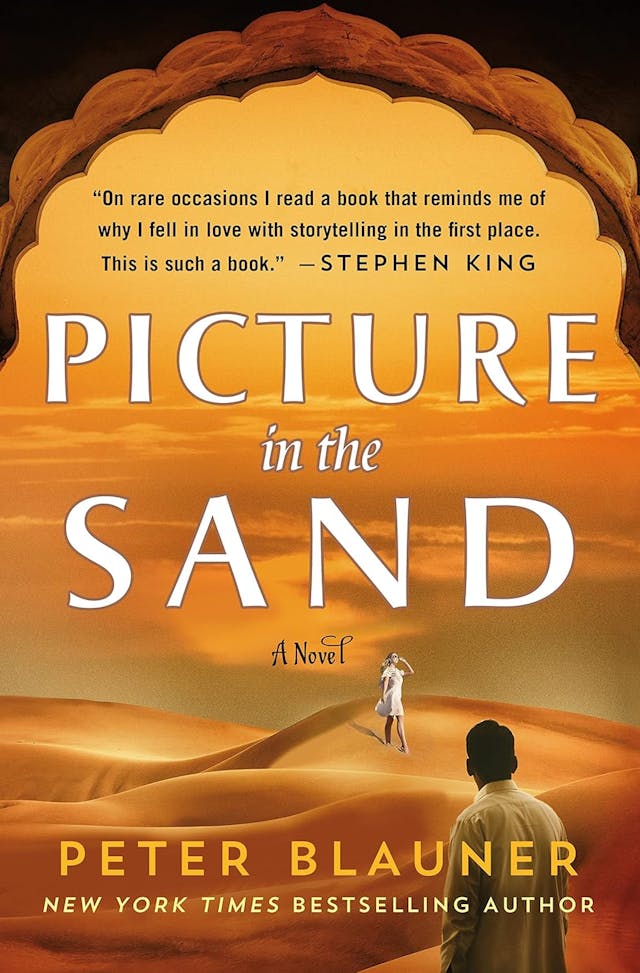I.S. Berry | July 3, 2023
The Monday Media Diet with I.S. Berry
On Bahrain, John Fante, and Vienna
Recommended Products

A thriller novel by a former case officer at CIA turned writer, detailing espionage and intrigue.

A novel by John Fante that captures the luminous gloom of 1930s Los Angeles with a lyrical noir style, almost like reading poetry.

A novel that juxtaposes a story of revolution in 1950s Egypt against contemporary insurrection movements in the Middle East.
I.S. Berry (IB) wrote one of the better thrillers I’ve read recently: The Peacock and the Sparrow. She’s a former case officer at CIA and has practiced national security law before becoming a writer. Buy her book for a great summertime read. -Colin (CJN)
Tell us about yourself.
I’m a former case officer for the CIA. I spent six years at the Agency, including one year in wartime Baghdad chasing terrorist leader Abu Musab al-Zarqawi. I’ve lived throughout Europe and the Middle East, including two years in Bahrain during the Arab Spring. Espionage and combat profoundly affected me, and I poured my experiences into a novel, The Peacock and the Sparrow (Simon & Schuster; May 2023). My book’s about an aging spy caught in the crosswinds of the Arab Spring who becomes ensnared in murder, consuming love, and an unpredictable revolution. It was my way of processing my experiences.
I’m also a lawyer. I focused on national security and international law in law school, so didn’t follow the traditional path. After coming in from the cold, I practiced national security law for a few years, but stepped back when I became a writer.
Above all, I’m a mom—my favorite (and hardest) job. I love urban hikes and destination bookstores and weird-flavored coffee drinks.
Describe your media diet.
Major papers (online) like the New York Times and Washington Post. I consume a lot of local news, like DCist or my local National Public Radio station (I live in DC, so local news is often national news). As a writer, I also consume a lot of literary and publishing news, like Publishers Weekly or Washington Post Book World. I watch the nightly national news pretty religiously. And—no surprise—I read SpyTalk on Substack.
What’s the last great book you read?
Ask the Dust by John Fante. I love Fante’s lyrical noir style and the way he captures the luminous gloom of 1930s L.A. It’s like reading poetry.
What are you reading now?
Picture in the Sand by Peter Blauner, a story of revolution in 1950s Egypt juxtaposed against contemporary insurrection movements in the Middle East.
What’s your reading strategy when you pick up a print copy of your favorite publication?
The only print copies I read these days are books; just about everything else I read online (though I never read books digitally!). When I do read a print publication—say, an alumni magazine—I skim from beginning to end, stopping to read articles that interest me.
Who should everyone be reading that they’re not?
Liam O’Flaherty, who wrote The Informer—one of the greatest spy novels of all time. O’Flaherty writes unflinchingly, with teeth bared; he writes with depth, texture, and grit, delving into the bowels of Irish social movements. Or Paul Bowles’ The Sheltering Sky, which so beautifully captures the hazards of being an outsider, the naivete of Americans in the Middle East and foreign lands.
What is the best non-famous app you love on your phone?
I’m not much of an app user. Not sure if Signal’s considered “non-famous,” but I have it, and occasionally people contact me with interesting, sensitive questions, like what they should do if they suspect Russians are following them. And I have “Here Comes the Bus” to track my son’s school bus—which is a bit less exciting.
Plane or train?
Train, absolutely. More freedom, more relaxing. And there’s something magical about watching the world pass by, taking in the varied landscapes like a patchwork quilt; pulling into each station and watching who will board and disembark.
What is one place everyone should visit?
Café Central in Vienna, Austria. It’s located in the heart of the city; it’s elegant and lux and brimming with history. Ornate, vaulted ceilings; herringboned wood floors; pastry displays that look like jewelry counters. It used to be a watering hole for world-class (and often dissident) luminaries like Sigmund Freud, Leon Trotsky, and Stefan Zweig, and still manages to exude a sophisticated, intellectual vibe. Sipping frothy coffee there, you just feel inspired; you’re reminded of the importance of ideas and questioning and art.
Tell us the story of a rabbit hole you fell deep into.
I confess that I spend way too much time on Zillow. I love to fantasize about where I’d live—and in what kind of house—if I had no financial or logistical constraints. I’ll spend hours choosing, say, the perfect Tudor revival home, then imagining ways I would fix it up and make it my own; scoping out nearby restaurants and shops I could walk to. Sometimes I just tell myself I’m doing research for my next book. (IB)
